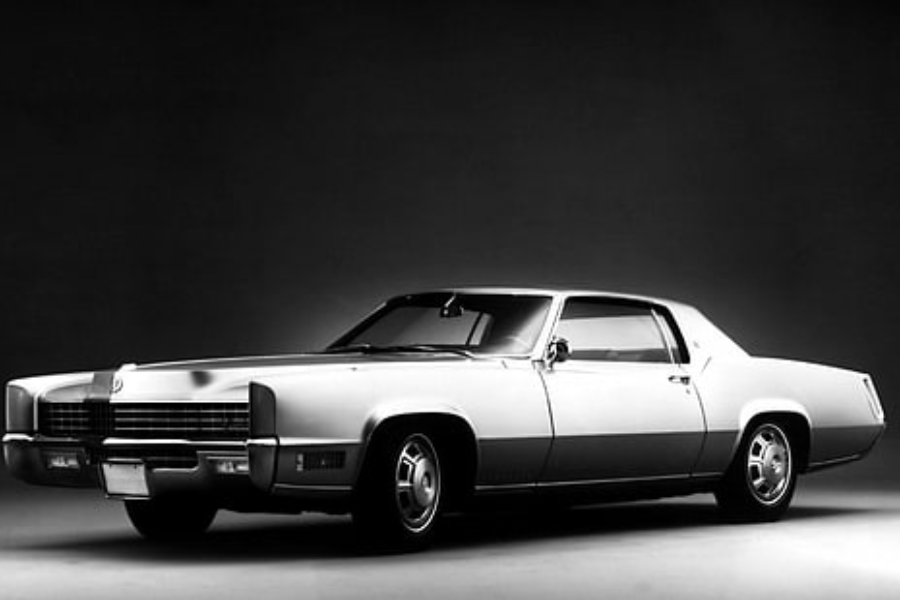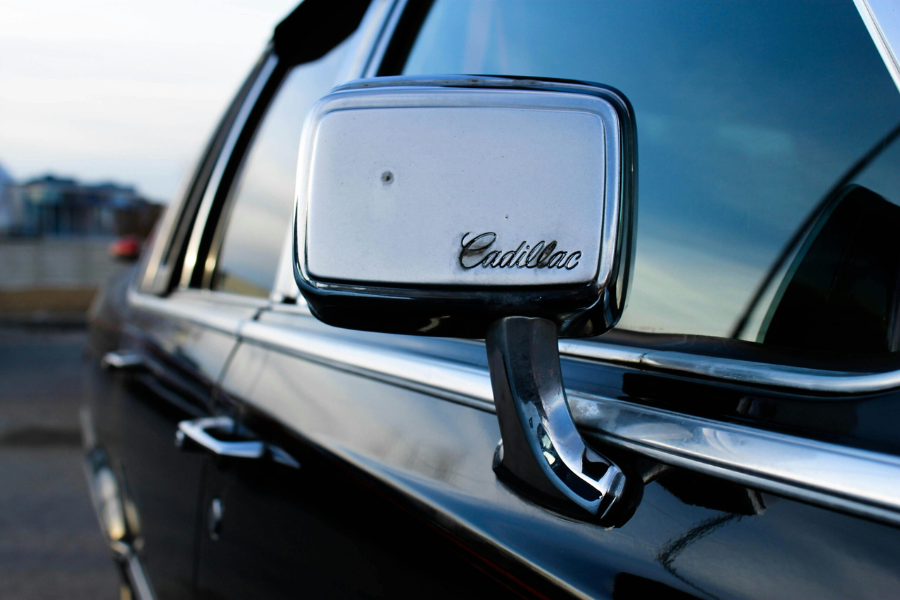Are Cadillacs Gas Guzzlers? An In-Depth Look at Fuel Efficiency
When luxury cars come to mind, Cadillacs often top the list. Known for their classic elegance and high performance, these vehicles have a storied reputation in American automotive history. However, a common question arises for potential buyers and car enthusiasts alike: “Are Cadillacs gas guzzlers?” In this blog post, we will delve into Cadillac’s fuel efficiency, debunk some myths, and provide insights into what owning a Cadillac really entails.
Understanding Cadillac’s Fuel Efficiency

Historically, Cadillacs have faced criticism for poor fuel economy, particularly in older models. However, in recent years, the brand has made considerable strides to enhance fuel efficiency. Modern Cadillacs incorporate advanced technology and a focus on sustainability, resulting in vehicles designed with fuel economy in mind.
For example, the Cadillac CT5 now boasts an impressive highway mileage of up to 32 MPG—an achievement that would have been hard to imagine for past generations of Cadillacs. This evolution reflects Cadillac’s commitment to providing eco-friendly options for discerning drivers.
The Influence of Engine Type on Fuel Consumption
The engine type in a Cadillac significantly impacts its fuel efficiency. Traditionally, the brand was synonymous with robust V8 engines, known for their power but often criticized for low fuel economy. Nowadays, Cadillac offers a variety of engine options, including efficient four-cylinder and V6 engines that balance performance with fuel efficiency.
Take the Cadillac XT4 compact SUV, for instance. It features a turbocharged four-cylinder engine that delivers solid power while maintaining respectable fuel economy. This engine choice is well-suited for both city driving and extended highway trips, offering drivers a mix of performance and savings at the pump.
Hybrid and Electric Models
As the demand for environmentally conscious vehicles grows, Cadillac has responded by introducing hybrid and electric models. The Cadillac Lyriq, an all-electric SUV, exemplifies the brand’s innovative approach, with an estimated range of over 300 miles on a single charge. This model challenges the notion that luxury and fuel efficiency can’t coexist.
Cadillac’s hybrid options, like the Escalade Hybrid, merge traditional gas engines with electric motors to optimize fuel efficiency. These models are perfect for those who want to experience the luxury and performance of a Cadillac while minimizing their carbon footprint.
Real-World Fuel Efficiency vs. Manufacturer Ratings
While the fuel economy figures provided by manufacturers are helpful, real-world driving conditions can greatly influence fuel efficiency. Factors such as driving style, terrain, and weather can all affect how far you can go on a tank of gas. It’s important for potential owners to consider these factors when assessing whether a Cadillac is a gas guzzler.
Drivers who practice steady acceleration and maintain consistent speeds are more likely to achieve better fuel economy. Additionally, routine maintenance—such as regular oil changes and proper tire pressure—can help enhance a vehicle’s fuel efficiency. By adopting fuel-efficient driving habits, Cadillac owners can maximize their MPG and lower fuel expenses.
Comparing Cadillacs to Other Luxury Brands
When evaluating Cadillac’s fuel efficiency, it’s useful to compare it with other luxury brands. Many luxury automakers have started offering fuel-efficient models. For example, both the BMW 5 Series and the Mercedes-Benz E-Class provide hybrid and diesel options that compete with Cadillac’s lineup.
In head-to-head comparisons, Cadillacs frequently hold their own in terms of fuel economy. The Cadillac XT5, for example, achieves around 26 MPG on the highway, a figure comparable to similar vehicles from Audi and Lexus. This parity underscores Cadillac’s efforts to remain competitive in the luxury segment without sacrificing fuel efficiency.
The Role of Driving Conditions
Driving conditions significantly impact a vehicle’s fuel economy. Like any car, Cadillacs can behave differently based on the environment. City driving, with its frequent stops and starts, generally results in higher fuel consumption than highway travel. However, modern Cadillacs come equipped with features like start-stop technology, which helps reduce fuel use during idle periods.
On the highway, Cadillacs can perform at their peak efficiency, especially when using cruise control. The sleek design of newer models minimizes drag, enhancing fuel economy at higher speeds. Understanding how different driving conditions affect fuel efficiency can help Cadillac owners make informed decisions about their driving habits.
Technological Innovations for Better Fuel Efficiency
Cadillac has embraced several technological advancements to enhance fuel efficiency. One such feature is Active Fuel Management (AFM), which deactivates some engine cylinders when full power isn’t necessary, conserving fuel in the process. The use of lightweight materials in vehicle construction further improves efficiency by reducing overall weight.
Turbocharging is another technology Cadillac employs to enhance fuel efficiency. Turbocharged engines deliver the performance of a larger engine while consuming less fuel, providing a dual benefit for drivers looking for both power and economy. These innovations highlight Cadillac’s commitment to sustainability and advanced automotive engineering.
The Total Cost of Ownership
Fuel efficiency is just one aspect to consider when evaluating the overall cost of owning a Cadillac. Maintenance, insurance, and depreciation are also key factors for prospective buyers. Although Cadillacs may require more maintenance than non-luxury vehicles, their advancements in fuel efficiency can help offset some of these expenses.
Owners of hybrid and electric models may also take advantage of tax incentives and rebates, which can significantly lower the total cost of ownership. Cadillac’s comprehensive warranty programs provide added peace of mind, helping to mitigate unexpected costs. Considering the full spectrum of ownership costs allows buyers to make more informed decisions.
Environmental Considerations
For consumers concerned about environmental impact, a vehicle’s fuel efficiency is crucial. Cadillac’s hybrid and electric offerings significantly cut down on greenhouse gas emissions compared to traditional internal combustion engines. Additionally, the use of sustainable materials and eco-friendly manufacturing practices underscores Cadillac’s commitment to environmental responsibility.
Choosing a fuel-efficient Cadillac not only reduces fuel expenses but also contributes to a healthier planet. By supporting brands that prioritize sustainability, consumers can drive change in the automotive landscape and foster the development of more eco-friendly vehicles.
Resale Value and Fuel Efficiency
Fuel efficiency can also influence a vehicle’s resale value. Cars with better fuel economy typically retain their value better in the used car market. This trend is increasingly relevant as fuel prices rise and public awareness of environmental issues grows. Buyers are more inclined to invest in fuel-efficient vehicles, recognizing their potential for long-term savings.
Cadillacs with impressive MPG ratings are likely to attract more buyers, ensuring a higher resale value. By opting for a fuel-efficient model, Cadillac owners can enjoy the benefits of luxury and performance while also securing a better return on their investment.
Dispelling Myths About Cadillac Fuel Efficiency
Despite the strides Cadillac has made in improving fuel efficiency, outdated misconceptions still linger. Many people associate the brand with gas guzzlers, primarily based on perceptions of older models. It’s crucial to acknowledge the significant advancements Cadillac has achieved in recent years regarding fuel economy.
Educating potential buyers about these improvements can help dispel myths and encourage informed purchasing decisions. Current Cadillac owners who share their positive experiences with modern fuel-efficient models can play a key role in changing perceptions.
Making an Informed Choice
When contemplating a Cadillac, it’s essential to weigh the benefits of fuel efficiency against other factors such as performance, comfort, and style. Conducting thorough research and test-driving various models can provide a clearer picture of what to expect.
Engaging with Cadillac dealerships and consulting reviews from automotive experts can offer valuable insights. Ultimately, the decision to purchase a Cadillac should be based on a well-rounded evaluation of all aspects of the vehicle, including its fuel efficiency.
Conclusion
In conclusion, the question of whether Cadillacs are gas guzzlers is nuanced. While older models may have had fuel efficiency challenges, contemporary Cadillacs present competitive MPG ratings and innovative features that conserve fuel. By understanding the factors that influence fuel economy and exploring Cadillac’s diverse model offerings, prospective buyers can make informed decisions that align with their preferences and values.
If you’re considering a Cadillac, take the time to explore hybrid and electric options, along with the various technologies that enhance fuel efficiency. This way, you can enjoy the luxury and performance of a Cadillac while also minimizing your environmental footprint and fuel costs.






